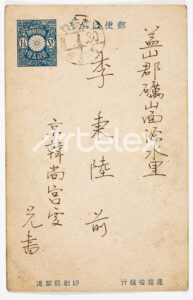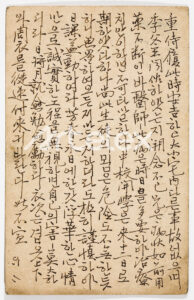Garām Lee Byeong-gi (1891-1968) played a pivotal role in the independence movement during the Japanese colonial period. He dedicated himself to preserving the identity of the Korean people through his research in Korean literature and the creation of *sijo* poetry, strongly resisting Japan’s assimilation policies. As a member of the Korean Language Society, he was instrumental in safeguarding and studying the Korean language, a commitment that led to his imprisonment during the Korean Language Society Incident. This incident was a prominent example of Japan’s crackdown on the study of the Korean language, yet Yi never wavered in his efforts to uphold its significance.
Lee also refused to comply with Japan’s *sōshi-kaimei* (forced name change) policy, which mandated Koreans to adopt Japanese names. By rejecting this policy, he remained steadfast in his commitment to preserving Korean identity.
His literary work further embodied his resistance to Japanese rule. Nowhere in his poetry or essays is there evidence of collaboration with the colonial regime. Instead, his writings reflected a strong sense of national pride and the desire for independence. In *Im Jong-guk’s* *Treatise on Pro-Japanese Literature,* Lee is recognized as one who left no trace of pro-Japanese sentiment in his work.
As an independence activist, Lee Byeong-gi used both scholarship and literature to resist Japanese oppression and preserve the cultural and linguistic heritage of the Korean people.
This letter was sent to my younger brother, Lee Byeong-yuk.


